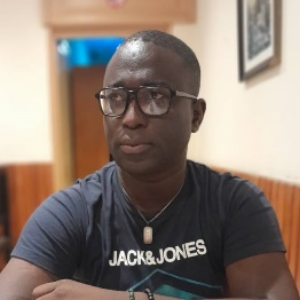Title : Influence of geology on physico-chemical parameters and fertility of ferralitic soils: Case of Gabonese sedimentary coastal and Granito-Gneissic basin
Abstract:
The second Sustainable Development Goal (SDG2) aims to eradicate hunger through the implementation of sustainable and resilient agricultural practices. This objective can’t be achieved without taking account soil. This is why the study of soil through their physico-chemical characterization and the evaluation of their fertility has become a global issue in general and the Congo Basin in particular. In Gabon, there are different geological substrate on which mainly ferralitic soils have developed. However, soils’ physico-chemical data are very old and studies on their fertility status are very rarely. The physical and chemical characteristics of the soils of coastal basin and granite-gneissic substratum of Gabon were evaluated to assess the fertility and productivity status of the soils. Sampling was carried out on the SOGADA sites in Kango (coastal basin) and Koulamoutou (granite-gneissic bassin0. The results obtained showed that the lithology of the two sites leads to soil quality that is different from each other. Indeed, the texture of the topsoil in the Kango site is loamy while that at Koulamoutou is laomy-sandy-clayeyed. Furthermore, the soil pH is very acidic to extremely acidic in coastal basin and granite-gneissic substratum respectively. This difference in acidity, closely linked to lithology, limits the bioavailability of nutrients (available phosphorus and exchangeable bases). Organic matter (12.45±5.00%; 13.82±7.42%) and available phosphorus are lower in coastal basin (1.95±3.16ppm) compared to granite-gneissic (4.69±6.03ppm). Nitrogen contents followed a similar trend to that of OM, higher in koulamoutou (0.68±0.35%) than in Kango (0.62±0.25%). Conversely, the cation exchange capacity (6.14±1.56 cmol.kg-1; 2.45±0.60cmol.kg-1) and the sum of exchangeable bases (SB, (Ca2+, Mg2+, K+ and Na+) are higher in coastal basin (17.03±4.86 cmol.kg-1 ) than in granito-gneissic basin (5,08±1,22 cmol.kg-1). Our results also showed that nutrient reserve (CEC/clay) is greather in kango (79.22%0 than in koulamoutou (16.33%) which can be explained by the type of clay minerals. However, in view of the so-called high saturation rate of the two soils (> 60%), it appears that the exchangeable bases (Ca2+, Mg2+, K+ and Na+) are less subject to desaturation but rather to mineralogical activity of the type of clays that the sites contain. In addition, the evaluation of the fertility status of the Koulamoutou and Kango sites showed that the pH, available P and CEC are the factors limiting the fertility of Gabonese ferralitic soils’ fertility. However, although both sites are class IV soil fertility and therefore present severe limitations. The Kango site is distinguished by a fertility described as average, unlike the Koulamoutou site where it is said to be low.
Audience Take Away Notes:
- Have a recent data on the physico-chemical parameters of ferralitic soils, Assessment of soil fertility
- Better understand the geological’s influence on soil fertility
- This research could be used by other faculty to expand their own research or teaching
- This provides a practical solution to a problem that could simplify or make a designer’s job more efficient
- It will improve the accuracy of a design, or provide new information to assist in a design problem
- Prove sustainable agriculture



